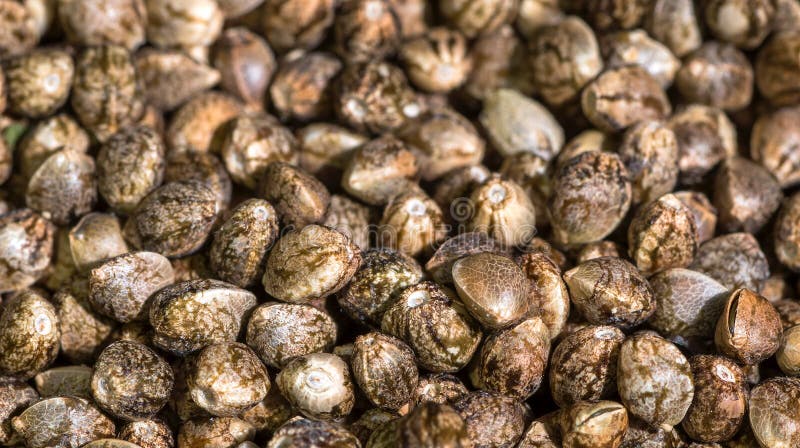In the realm of agriculture, the defense of exclusive genetic strains is a essential factor that guarantees the variety and resilience of crops. Cannabis, often referred to as the “inexperienced gold,” is no exception to this theory. As the cannabis market proceeds to burgeon, it results in being imperative to recognize and safeguard the various genetic strains that lead to the plant’s abundant tapestry. This post delves into the significance of preserving exceptional genetic strains in hashish seeds and the actions expected for their security.
The Worth of Genetic Variety:
Genetic range is the foundation of a robust and adaptable plant species. In the case of cannabis, genetic range contributes to the plant’s capability to resist pests, illnesses, and environmental stressors. Also, it plays a pivotal part in establishing strains with distinctive cannabinoid and terpene profiles, catering to varied shopper choices and medicinal requirements.
Preserving rare and unique genetic strains ensures the availability of a broad spectrum of features inside the cannabis gene pool. This genetic reservoir is necessary for acquiring new versions that can thrive in distinctive climates, offer distinctive therapeutic rewards, and give a numerous selection of sensory experiences for buyers.
official site to Genetic Diversity:
In spite of the inherent value of genetic variety, several worries threaten the preservation of one of a kind hashish genetic strains. The key worry lies in the lawful and regulatory landscape encompassing cannabis cultivation. Stringent rules and constraints on the cultivation, distribution, and exchange of hashish seeds hinder the cost-free movement of genetic materials throughout borders.
Also, the rise of large-scale professional cultivation and the dominance of a handful of popular strains pose a hazard to the proliferation of lesser-acknowledged, one of a kind genetic varieties. Without enough safety, these strains may come to be extinct or marginalized, resulting in a decline of precious genetic methods.
The Function of Intellectual House Legal rights:
Intellectual assets legal rights (IPR) participate in a crucial purpose in safeguarding distinctive genetic strains. By obtaining patents or plant breeders’ rights, breeders and cultivators can guard their creations, incentivizing innovation and investment in the cannabis sector. Even so, the application of IPR in the hashish sector is complex, with variants in authorized frameworks throughout unique jurisdictions.
Some international locations and regions have embraced the security of hashish-relevant mental assets, though other folks preserve demanding prohibitions. Developing a standardized and globally recognized framework for the protection of cannabis genetic strains can facilitate the development of a sustainable and ground breaking business.
Neighborhood Engagement and Moral Criteria:
Preserving special genetic strains is not entirely a lawful or regulatory challenge—it also requires ethical factors and local community engagement. Lots of classic cannabis cultivators and indigenous communities have been the stewards of unique genetic strains for generations. Recognizing and respecting their contributions to the cannabis gene pool is necessary for sustainable and equitable development.
Encouraging honest trade procedures, respecting common understanding, and involving nearby communities in conservation initiatives are critical measures in making certain the moral preservation of cannabis genetic range. Collaborative initiatives involving sector stakeholders, scientists, and community communities can foster a a lot more inclusive and dependable tactic to genetic strain protection.
The Part of Seed Banking companies:
Seed banks engage in a pivotal function in the conservation and distribution of hashish genetic materials. These repositories retail outlet a numerous array of seeds, performing as a safeguard versus reduction owing to organic disasters, conflicts, or regulatory variations. Seed financial institutions also provide as important means for breeders and scientists trying to get to acquire new and resilient cannabis versions.
General public and personal seed banks, doing the job in conjunction with international companies, can contribute to the global hard work of preserving exclusive genetic strains. Collaboration and info-sharing amongst seed banks can support make a comprehensive database of hashish genetic variety, ensuring its accessibility for long run generations.
Conclusion:
The security of one of a kind genetic strains in hashish seeds is not just a make a difference of preserving biodiversity—it is a safeguard for the potential of the cannabis market and its opportunity contributions to medicine, agriculture, and client well-currently being. Balancing legal frameworks, ethical considerations, and group engagement is critical for creating a sustainable and inclusive tactic to genetic pressure defense.
As the cannabis landscape continues to evolve, it is our collective responsibility to cultivate a aware and ahead-pondering industry—one that values the richness of genetic range and makes sure the longevity of the eco-friendly gold.
